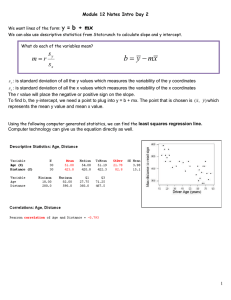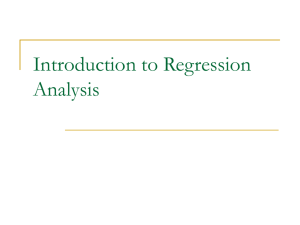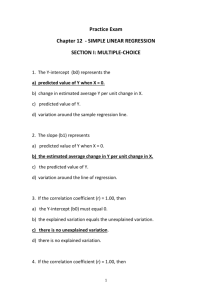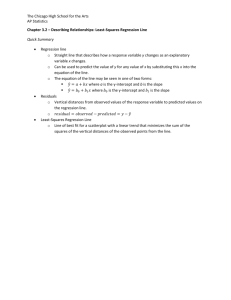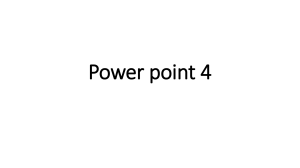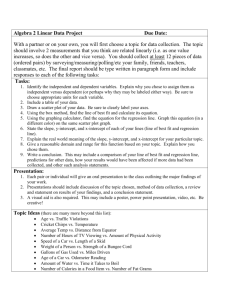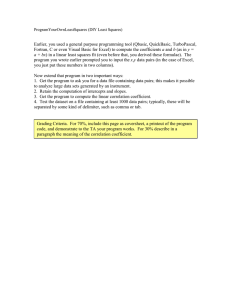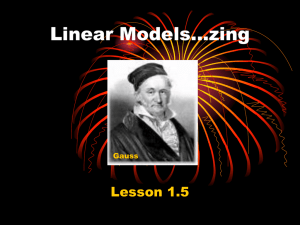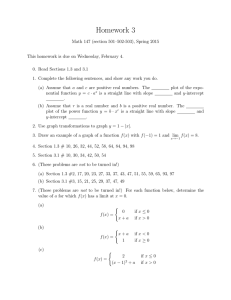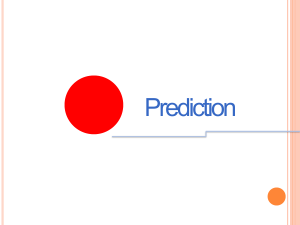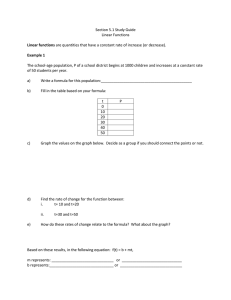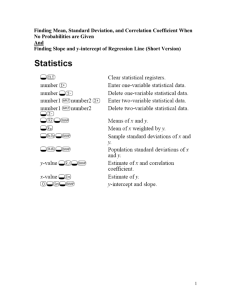( ) ( ) ∑
advertisement
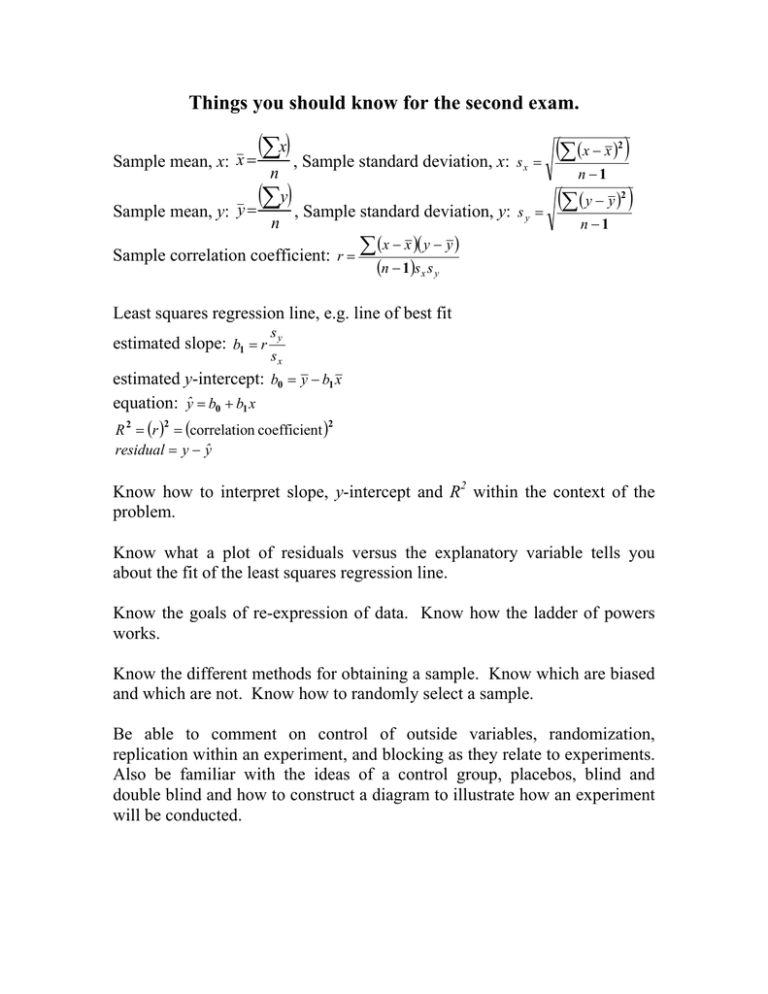
Things you should know for the second exam. Sample mean, x: x = (∑x) , Sample standard deviation, x: s Sample mean, y: y = (∑y) , Sample standard deviation, y: s n n Sample correlation coefficient: r = ∑ (x − x )( y − y ) (n − 1)s x s y = (∑ (x − x ) ) = (∑ ( y − y ) ) 2 x n −1 2 y n −1 Least squares regression line, e.g. line of best fit estimated slope: b1 = r sy sx estimated y-intercept: b0 = y − b1 x equation: ŷ = b0 + b1 x R 2 = (r ) = (correlation coefficient ) residual = y − ŷ 2 2 Know how to interpret slope, y-intercept and R2 within the context of the problem. Know what a plot of residuals versus the explanatory variable tells you about the fit of the least squares regression line. Know the goals of re-expression of data. Know how the ladder of powers works. Know the different methods for obtaining a sample. Know which are biased and which are not. Know how to randomly select a sample. Be able to comment on control of outside variables, randomization, replication within an experiment, and blocking as they relate to experiments. Also be familiar with the ideas of a control group, placebos, blind and double blind and how to construct a diagram to illustrate how an experiment will be conducted.
